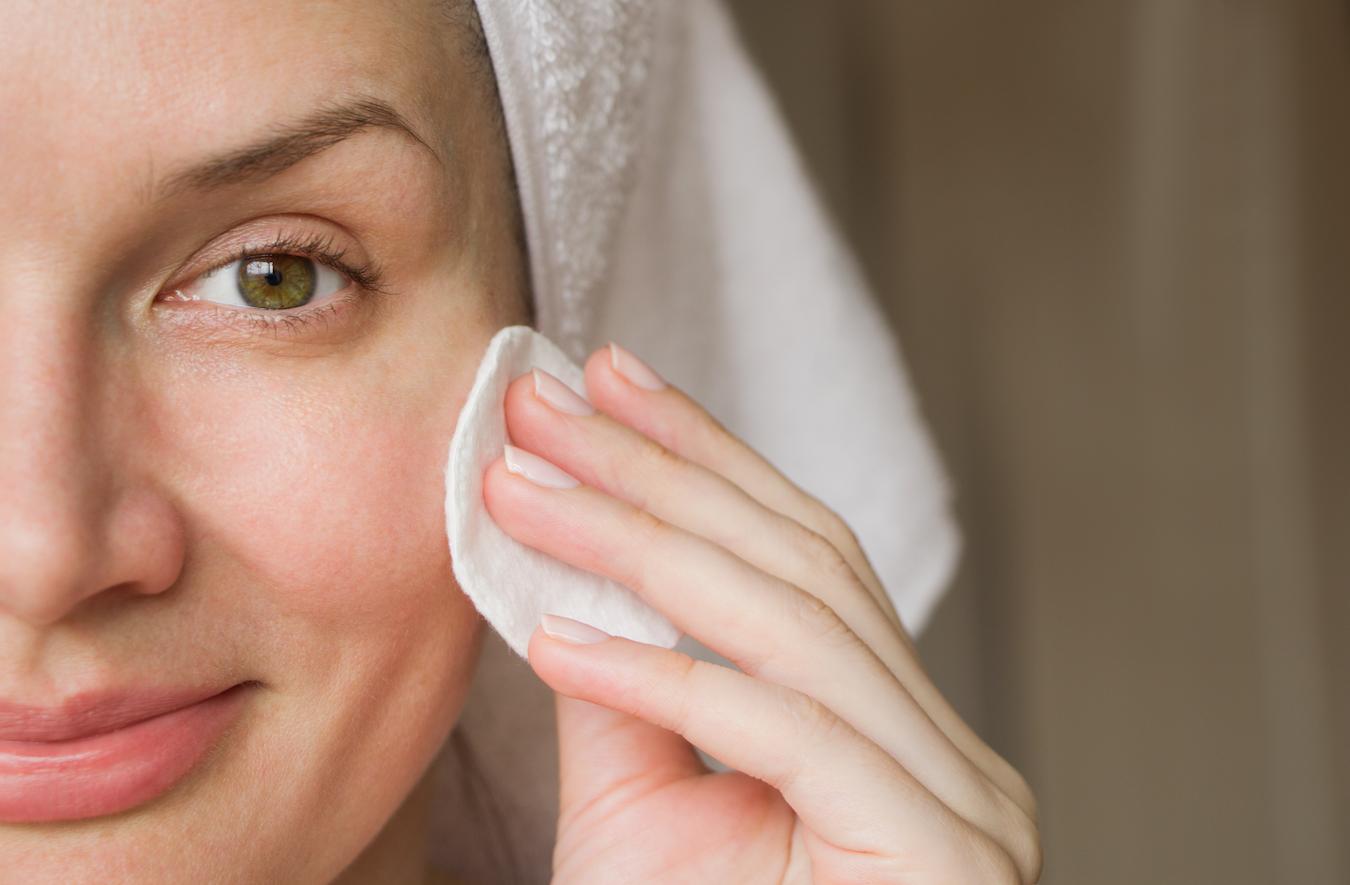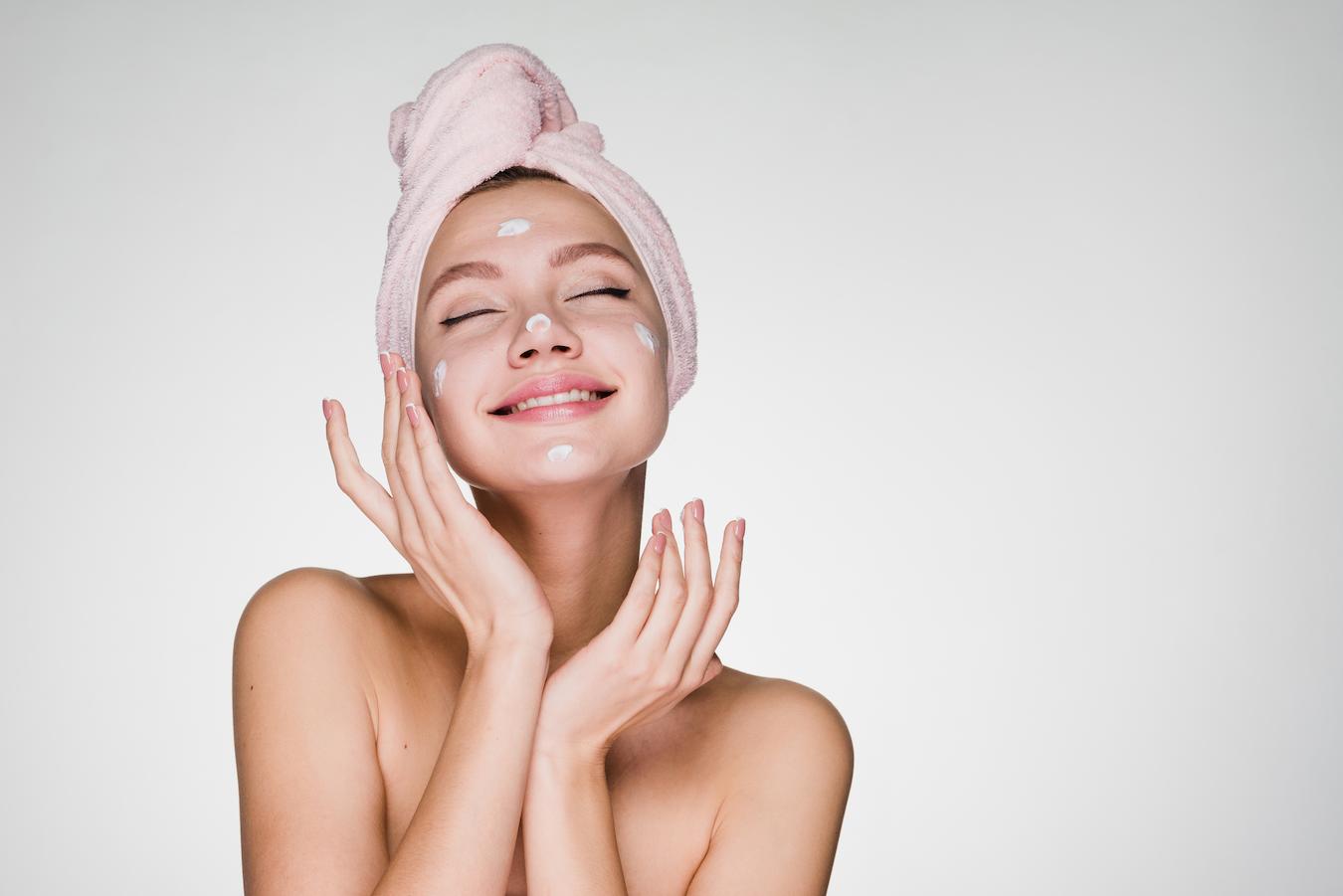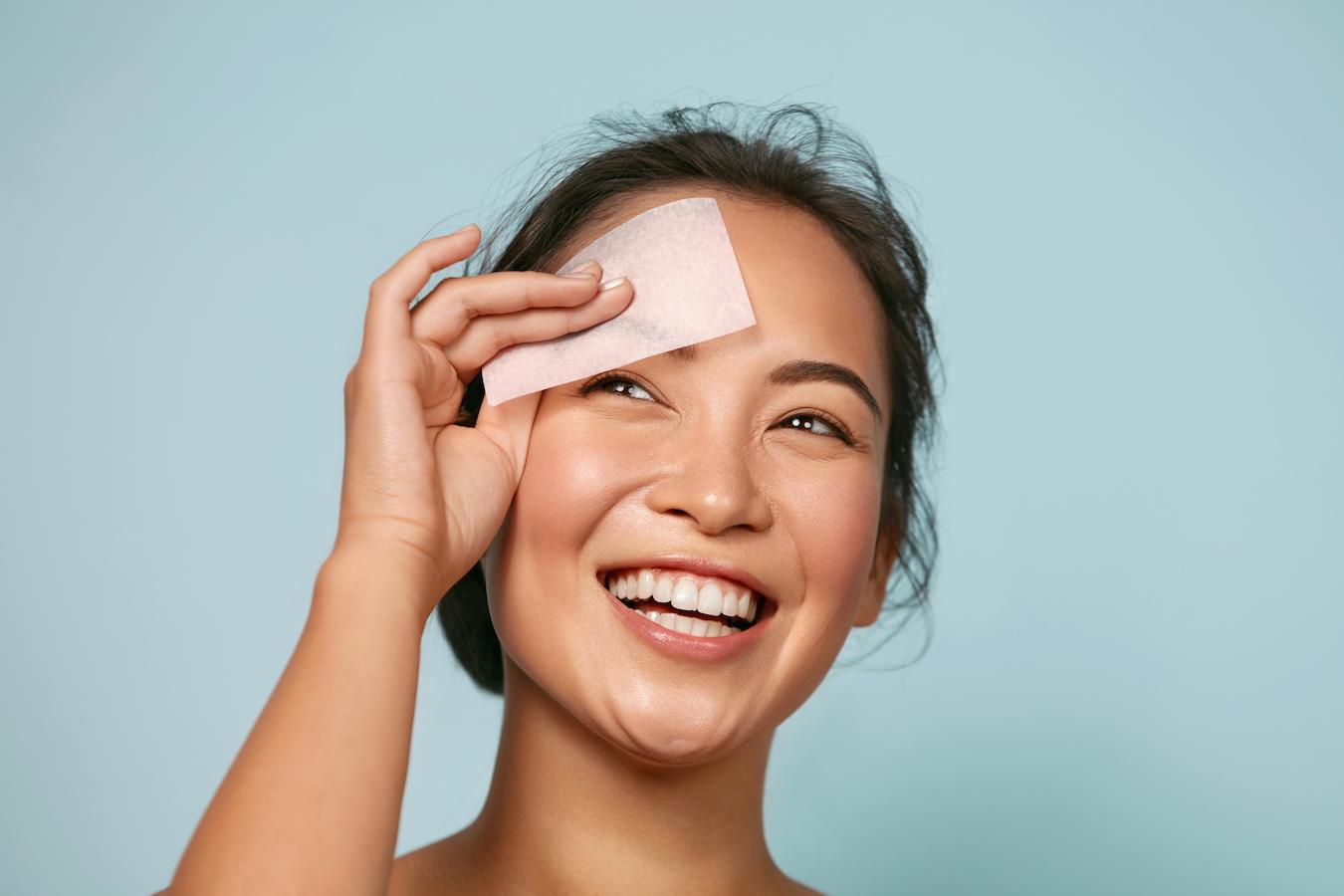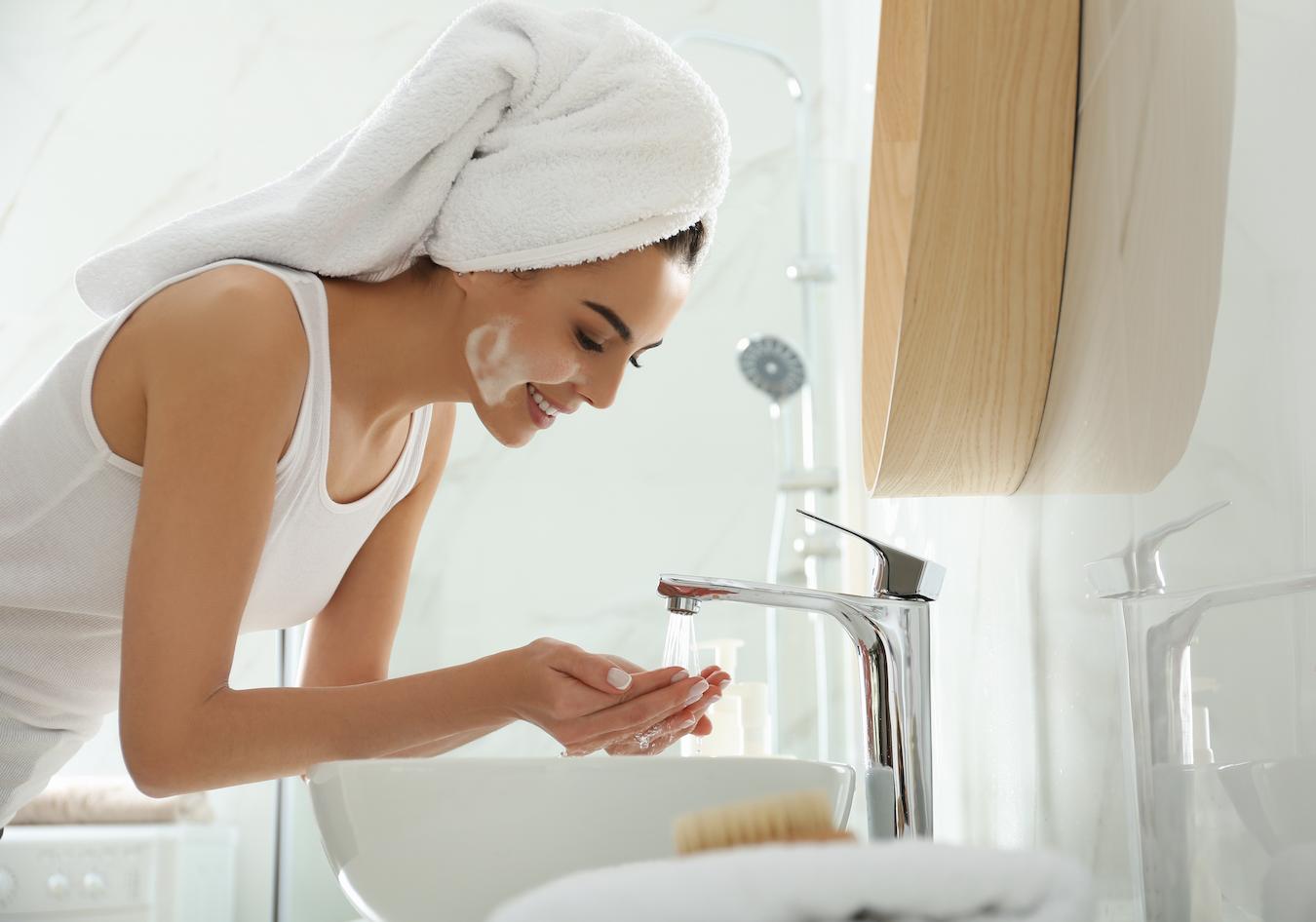Why Is My Skin So Oily All Of A Sudden?

There are a lot of things you probably thought you left behind in middle school. Awkward dances, developing crushes on the latest boy bands, oily skin…
Well, we’re not here to judge on whether you still have those boyband crushes. Or whether you still dance awkwardly with your arms stretched out from your partner as far as possible.
But if you’re still dealing with oily skin, or if oily skin has come back to haunt you, we’ve got you covered. Below you’ll find the most common reasons why you may be experiencing oily skin once again and how to treat it once and for all.
See Related: 10 Tips to Keep Your Skin Hydrated
What may be making your face oily
Oily skin is caused by excess oil production from your sebaceous glands. Sebum production is responsible for secreting various kinds of fluids such as wax esters, squalene, free fatty acids, and more.
And a normal amount of your skin’s natural oil is a good thing. But overactive sebaceous glands can land you with breakouts, acne, and a shiny complexion to boot.
#1. Stress
You might not think so, but that upcoming event or interpersonal dispute might be causing you to produce more oil than normal. That’s because when we’re stressed or anxious, our body releases cortisol, a stress hormone.
And this stress hormone can cause excessive oil production on your face. As if you weren’t stressed enough now with oily skin…
But you can combat that excess sebum by taking a couple of minutes to breathe. Or wind down with a mindful meditation.
It might seem silly. But addressing your stress head can actually help you soothe irritated skin as you coax your body into letting go of that excess oil.
#2. Hormonal changes
There’s a reason why we often equate oily skin with middle school. That’s the typical age that our bodies go through puberty, AKA major hormonal changes.
When your hormones get out of whack, excess oil production can go through the roof. And for those with hormonal disorders, it can be doubly difficult to stop oily skin from overhauling your life.

But this isn’t to say that you can’t get your sebum production back under control. It may be as easy as switching medication, managing stress, or eating healthier foods.
#3. Insufficient hydration
Have you been drinking enough water lately? Really?
Because water is an essential part to your skin’s healthy appearance. With too little water, your skin may start to produce excess oil to compensate for lack of moisture.
So to combat this, simply drink plenty of water throughout the day, everyday. Or decaffeinated herbal teas if you really can’t stand the flavor-lessness of water.
#4. Genetics
Some people are just born with the oily skin gene. And that oily skin may show up a little later in life than you anticipated.
Unfortunately, you can’t change your genes. But this isn’t to say that there aren’t ways to remove excess oil.
In fact, there are plenty! But more on that later.
#5. A poor diet
Sugary treats, too much alcohol, fried foods, and more all directly affect an overactive sebum production. So think before you gorge your feelings about having oily skin in the first place.
An overly sweet diet can cause a steep insulin spike. And, as a result, the excess oil produced by your skin can clog pores, follicles, and generally worsen your complexion and skin type.
Additionally, these kinds of foods can also raise your body’s androgen levels. And that’s the exact hormone associated with fluctuations in oil production.
But adopting a healthy lifestyle and diet can help you combat your skin when it decides to overproduce oil. And you can say bye-bye to more sebum and hello to a previously oily face.
#6. Weather changes
You may get dry skin in the winter time from the cold weather. So it only stands that you may get oily skin in the summer when there are natural fluctuations in heat and humidity.
That being said, some folks might still have oily skin during the winter seasons. So it really can vary from skin type to skin type.
#7. Medication
Certain medications like birth control and hormone replacement therapy can similarly make your skin oily. And with these medications in particular, it harkens back to the subject of hormones.
On the other hand, there are also many medications out there that can cause dehydration in the skin, leading to too much oil from your sebaceous glands. So yes, it is a vicious cycle.
But if you’re concerned about having more oil on your skin’s surface, talk to your dermatologist and doctor. There may be certain medication combinations that work for you.
#8. Your skin care routine
Lastly, using the wrong skin care products can actually derail all of your skin care goals. For example, overdoing your intense skin cleaning routine can actually lead to more oil production.

So while you might be attacking the problem head on, you’re actually making it worse. But we’re not all doom and gloom over here – we promise!
In fact, we’ve just been waiting to tell you all the ways that you can treat oily or combination skin and maintain a consistent skin care routine. Well, you’ve waited this long – so go ahead!
Bonus: How Long Does Liquid Foundation Last?
Treating oily skin
If you just skipped down to this part, consider yourself busted. (Seriously though, you should read the previous section to make sure you’re not accidentally contributing to the oily substance on your face!)
#1. Don’t use rough washcloths
Washing your face is a part of any good skincare routine. But you want to make sure that you don’t use rough towels or washcloths.
This added friction might seem like it’s taking off some of that excess oil. But it’s actually causing your skin to overproduce it since you’re stripping away your skin’s natural moisture!
Instead, you’ll want to use warm water and a gentle soap with no harsh chemicals. And if this doesn’t quite do the trick, consider looking for products with glycolic acid, salicylic acid, beta-hydroxy acids, or benzoyl peroxide. Even an AHA serum should do the trick.
These acids may be irritating to some skin types. So always be sure to start on a small area of skin to see how your skin reacts.
#2. Use a gel face wash on oily skin
A gel face wash will be a welcome addition to your skincare routine. It will do a great job at removing any excess oil and all without leaving behind any residue.

Additionally, look for face washes that are oil free and contain antibacterial and antiseptic qualities. As we mentioned earlier, oily skin can lead to breakouts.
So tackling that bacteria with antiseptic properties should do the trick. And if you’re looking for natural ingredients, consider using colloidal oatmeal formulations to soothe your skin all without stripping it of its natural moisture.
#3. Remove all makeup to prevent clogged pores
Not only do you want to make sure that you remove all makeup from your skin at the end of the day. You want to make sure you’re using light formulas if your skin is naturally oily.
Typically, heavy cosmetics can actually lock in your natural oils. And this can cause the skin to produce an excess of oil while clogging up your pores.
We know it’s a tricky balance to strike. But understanding your skin and what cosmetics will match it best will do wonders for not only your makeup routine, but your budget too!
No more dabbing it off all the time because your skin is trying to breathe. You’ll get to enjoy those light formulas and stay hydrated in the process.
#4. Keep your skin moisturized
It seems counterintuitive to moisturize oily skin. But that’s exactly what clinical and aesthetic dermatology tell us to do!
Moisturizing with an oil free, water based moisturizer will have a soothing effect on oily skin. Because you’re essentially telling your sebaceous glands, “It’s okay. The hydration is here. You can step down.”
Using a light moisturizer will not only ensure that your skin stays hydrated. But it will also balance your skin’s oil production. That way, everybody’s happy!
#5. Continue to wear sunscreen
Sunscreen is non-negotiable. Even if you think it will make your skin more oily, it won’t.
Sun damaged skin can cause premature skin aging and dryness, both of which can cause your sebaceous glands to produce more oil than you need. But it’s just trying to protect your skin.
So beat your skin to the punch and apply SPF everyday. You won’t regret it.
#6. Use a toner to dry your skin out
Toners are natural astringents. They help to dry out the skin.
But remember: you don’t want to dry out the skin too much. Instead of choosing a toner with alcohol, try one with witch hazel.

This will contain anti-inflammatory compounds as well as skin soothing properties. So it strikes the perfect balance in between.
Not to mention that gently and naturally exfoliating can help too. But again, striking the perfect balance is key.
#7. Apply a face mask
Face masks are not only a great way to wind down at the end of the week. But they can also help you tackle oily skin.
Look for ingredients such as clay and honey. Clay masks do a great job at absorbing oils and reducing skin shininess.
And it does this all without irritating the skin. On the other hand, raw honey can also help to clean off your skin due to its antiseptic and antibacterial qualities.
You can use honey to reduce acne and oily skin. And you’ll also get some super soft skin in the process.
The bottom line
Oily skin isn’t really fun for anyone. But having oily skin is certainly not the end of the road.
Use these tips to help clear up excess oil from your skin. Or consider making some changes in your day to day life to help your skin produce a healthy amount of oil.
Either way, we’re hoping you see results. We’re rooting for you!
Keep Reading: 13 Best Anti-Aging Oils For Wrinkles According To Experts
—
For over 60 years, Viviane Woodard has represented “The Purity of Skincare”. We are the leading beauty brand for skin care products and promote the importance of good skin hydration. Follow us on Facebook, Instagram, Twitter, and Pinterest for skin care tips, product discounts, and more.
